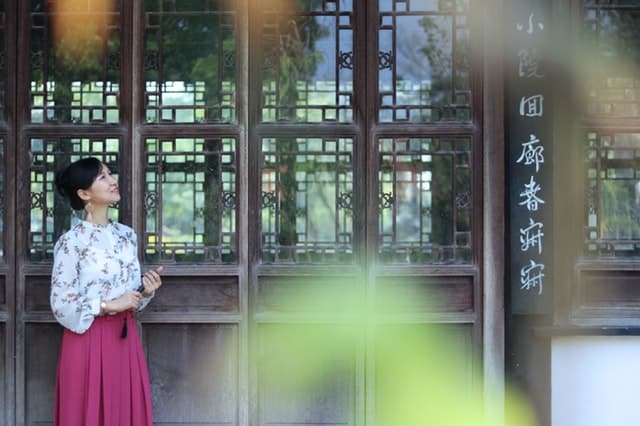随便你 (suíbiàn nǐ) / 随你 (suí nǐ)
The common expressions
随便你 (suíbiàn nǐ) / 随你 (suí nǐ)
随便你 or 随你 means “it’s up to you” or “do as you please” and is commonly used in casual situations when you don’t have a preference.
e.g.
去哪儿随(便)你,我都可以。 (Qù nǎ’er suíbiàn nǐ, wǒ dōu kěyǐ.) Where we go is up to you, I’m fine with anything.
晚饭吃什么随(便)你。 (Wǎnfàn chī shénme suíbiàn nǐ.) What we have for dinner is up to you.
要不要去随(便)你,我没意见。 (Yào bù yào qù suíbiàn nǐ, wǒ méi yìjiàn.) Whether we go or not is up to you, I don’t mind.
The extended phrases to express “It’s up to you” in Chinese
由你决定 (yóu nǐ juédìng)
由你决定 literally means “it’s your decision” or “you decide.” It is often used in both casual and formal contexts to indicate that the choice is in the other person’s hands.
e.g.
今晚吃什么由你决定。 (Jīnwǎn chī shénme yóu nǐ juédìng.) What we eat tonight is up to you.
要不要参加这个活动由你决定。 (Yào bù yào cānjiā zhège huódòng yóu nǐ juédìng.) Whether to attend this event is up to you.
这次旅行的目的地由你决定吧。 (Zhè cì lǚxíng de mùdìdì yóu nǐ juédìng ba.) The destination for this trip is up to you.
看你 (kàn nǐ)
看你 literally means “depends on you” and is used to show that the final decision rests with the other person.
e.g.
什么时候出发看你。 (Shénme shíhòu chūfā kàn nǐ.) When we leave is up to you.
这个问题的解决办法看你。 (Zhège wèntí de jiějué bànfǎ kàn nǐ.) How to solve this problem is up to you.
要不要去聚会看你。 (Yào bù yào qù jùhuì kàn nǐ.) Whether to go to the party is up to you.
你说了算 (nǐ shuō le suàn)
This phrase means “you have the final say” or “it’s your call.” It emphasizes that the other person is in control of the decision.
e.g.
这件事你说了算。 (Zhè jiàn shì nǐ shuō le suàn.) This matter is up to you.
去哪家餐厅你说了算。 (Qù nǎ jiā cāntīng nǐ shuō le suàn.) Which restaurant we go to is up to you.
你想怎么做你说了算。 (Nǐ xiǎng zěnme zuò nǐ shuō le suàn.) How you want to do it is up to you.
听你的 (tīng nǐ de)
听你的 means “I’ll listen to you” or “it’s up to you.” It is a casual phrase used to show you’ll follow the other person’s decision.
e.g.
今晚的活动听你的。 (Jīnwǎn de huódòng tīng nǐ de.) Tonight’s activity is up to you.
去哪儿玩听你的,我没主意。 (Qù nǎ’er wán tīng nǐ de, wǒ méi zhǔyì.) Where we go to have fun is up to you, I have no idea.
吃什么听你的。 (Chī shénme tīng nǐ de.) What to eat is up to you.
看你的安排 (kàn nǐ de ānpái)
看你的安排 means “it depends on your arrangement” or “I’ll follow your plan.” It is often used to show flexibility in scheduling.
e.g.
周末的计划看你的安排。 (Zhōumò de jìhuà kàn nǐ de ānpái.) The weekend plan is up to your arrangement.
明天的时间看你的安排。 (Míngtiān de shíjiān kàn nǐ de ānpái.) Tomorrow’s schedule is up to you.
晚饭怎么吃看你的安排。 (Wǎnfàn zěnme chī kàn nǐ de ānpái.) How we have dinner is up to your arrangement.
你定 (nǐ dìng)
你定 is a casual and brief way of saying “you decide” or “it’s up to you.” It is commonly used in everyday conversations when you want to let the other person make the decision.
e.g.
今晚吃什么你定吧。 (Jīnwǎn chī shénme nǐ dìng ba.) What we eat tonight is up to you.
周末去哪儿玩你定。 (Zhōumò qù nǎ’er wán nǐ dìng.) Where to go this weekend is up to you.
电影时间你定,我都可以。 (Diànyǐng shíjiān nǐ dìng, wǒ dōu kěyǐ.) You decide the movie time, I’m fine with anything.
The post Various ways to say “It’s up to you” in Chinese appeared first on .


